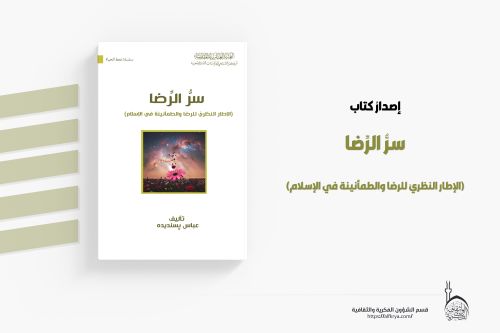

Grammar


Tenses


Present

Present Simple

Present Continuous

Present Perfect

Present Perfect Continuous


Past

Past Continuous

Past Perfect

Past Perfect Continuous

Past Simple


Future

Future Simple

Future Continuous

Future Perfect

Future Perfect Continuous

Passive and Active


Parts Of Speech


Nouns

Countable and uncountable nouns

Verbal nouns

Singular and Plural nouns

Proper nouns

Nouns gender

Nouns definition

Concrete nouns

Abstract nouns

Common nouns

Collective nouns

Definition Of Nouns


Verbs

Stative and dynamic verbs

Finite and nonfinite verbs

To be verbs

Transitive and intransitive verbs

Auxiliary verbs

Modal verbs

Regular and irregular verbs

Action verbs


Adverbs

Relative adverbs

Interrogative adverbs

Adverbs of time

Adverbs of place

Adverbs of reason

Adverbs of quantity

Adverbs of manner

Adverbs of frequency

Adverbs of affirmation


Adjectives

Quantitative adjective

Proper adjective

Possessive adjective

Numeral adjective

Interrogative adjective

Distributive adjective

Descriptive adjective

Demonstrative adjective


Pronouns

Subject pronoun

Relative pronoun

Reflexive pronoun

Reciprocal pronoun

Possessive pronoun

Personal pronoun

Interrogative pronoun

Indefinite pronoun

Emphatic pronoun

Distributive pronoun

Demonstrative pronoun


Pre Position


Preposition by function

Time preposition

Reason preposition

Possession preposition

Place preposition

Phrases preposition

Origin preposition

Measure preposition

Direction preposition

Contrast preposition

Agent preposition


Preposition by construction

Simple preposition

Phrase preposition

Double preposition

Compound preposition


Conjunctions

Subordinating conjunction

Correlative conjunction

Coordinating conjunction

Conjunctive adverbs


Interjections

Express calling interjection


Grammar Rules

Preference

Requests and offers

wishes

Be used to

Some and any

Could have done

Describing people

Giving advices

Possession

Comparative and superlative

Giving Reason

Making Suggestions

Apologizing

Forming questions

Since and for

Directions

Obligation

Adverbials

invitation

Articles

Imaginary condition

Zero conditional

First conditional

Second conditional

Third conditional

Reported speech


Linguistics

Phonetics

Phonology


Semantics


Pragmatics

Linguistics fields

Syntax

Morphology

Semantics

pragmatics

History

Writing

Grammar

Phonetics and Phonology

Semiotics


Reading Comprehension

Elementary

Intermediate

Advanced


Teaching Methods

Teaching Strategies
Vowels and Diphthongs BATH
المؤلف:
Joan Beal
المصدر:
A Handbook Of Varieties Of English Phonology
الجزء والصفحة:
122-6
2024-02-24
1195
Vowels and Diphthongs BATH
Although /a:/ exists as a contrastive phoneme in northern English dialects, its distribution is more restricted than in the South. In the North, this vowel is notably absent from the BATH set. This feature and the unsplit FOOT–STRUT vowel are the two most salient markers of northern English, but the vowel in BATH words is the more stable and salient of the two. Wells (1982: 354) puts this point elegantly: “there are many educated northerners who would not be caught dead doing something so vulgar as to pronounce STRUT words with  , but who would feel it to be a denial of their identity as northerners to say BATH words with anything other than short [a]”. Like the FOOT–STRUT split, lengthening of an earlier short vowel /a/ in BATH words dates from the 17th century. The history of these words is very complex, but the lengthening certainly seems to have been a southern innovation, which was, in fact, stigmatized as a Cockneyism until well into the 19th century. Today, it is the northern short /a/ which is stigmatized, popularly described as a flat vowel, but as Wells’s quote suggests, it is a stigma which is worn with pride by the vast majority of northerners. Indeed, in northern universities, students from the South are observed to shorten their pronunciation of the vowel in BATH words, assimilating to the pronunciation of their peers. In some northern varieties, there are lexical exceptions to the rule that BATH words have a short vowel: in Tyneside and Northumberland, master, plaster and less frequently disaster are pronounced with /a:/ (phonetically more like
, but who would feel it to be a denial of their identity as northerners to say BATH words with anything other than short [a]”. Like the FOOT–STRUT split, lengthening of an earlier short vowel /a/ in BATH words dates from the 17th century. The history of these words is very complex, but the lengthening certainly seems to have been a southern innovation, which was, in fact, stigmatized as a Cockneyism until well into the 19th century. Today, it is the northern short /a/ which is stigmatized, popularly described as a flat vowel, but as Wells’s quote suggests, it is a stigma which is worn with pride by the vast majority of northerners. Indeed, in northern universities, students from the South are observed to shorten their pronunciation of the vowel in BATH words, assimilating to the pronunciation of their peers. In some northern varieties, there are lexical exceptions to the rule that BATH words have a short vowel: in Tyneside and Northumberland, master, plaster and less frequently disaster are pronounced with /a:/ (phonetically more like  ), but faster with /a/, whilst master alone is pronounced with /a:/ in other varieties (Lancashire, Sheffield). As with unsplit FOOT–STRUT, the short vowel in BATH words is a feature of all northern English dialects, but is also found throughout the Midlands, at least as far south as Birmingham. Nevertheless, these are the features most often referred to in stereotypes of northern speech, and most often mentioned when subjects are asked to name features of northern dialect. All the features discussed below differentiate dialects in the North of England from each other.
), but faster with /a/, whilst master alone is pronounced with /a:/ in other varieties (Lancashire, Sheffield). As with unsplit FOOT–STRUT, the short vowel in BATH words is a feature of all northern English dialects, but is also found throughout the Midlands, at least as far south as Birmingham. Nevertheless, these are the features most often referred to in stereotypes of northern speech, and most often mentioned when subjects are asked to name features of northern dialect. All the features discussed below differentiate dialects in the North of England from each other.















 قسم الشؤون الفكرية يصدر مجموعة قصصية بعنوان (قلوب بلا مأوى)
قسم الشؤون الفكرية يصدر مجموعة قصصية بعنوان (قلوب بلا مأوى) قسم الشؤون الفكرية يصدر مجموعة قصصية بعنوان (قلوب بلا مأوى)
قسم الشؤون الفكرية يصدر مجموعة قصصية بعنوان (قلوب بلا مأوى) قسم الشؤون الفكرية يصدر كتاب (سر الرضا) ضمن سلسلة (نمط الحياة)
قسم الشؤون الفكرية يصدر كتاب (سر الرضا) ضمن سلسلة (نمط الحياة)

















